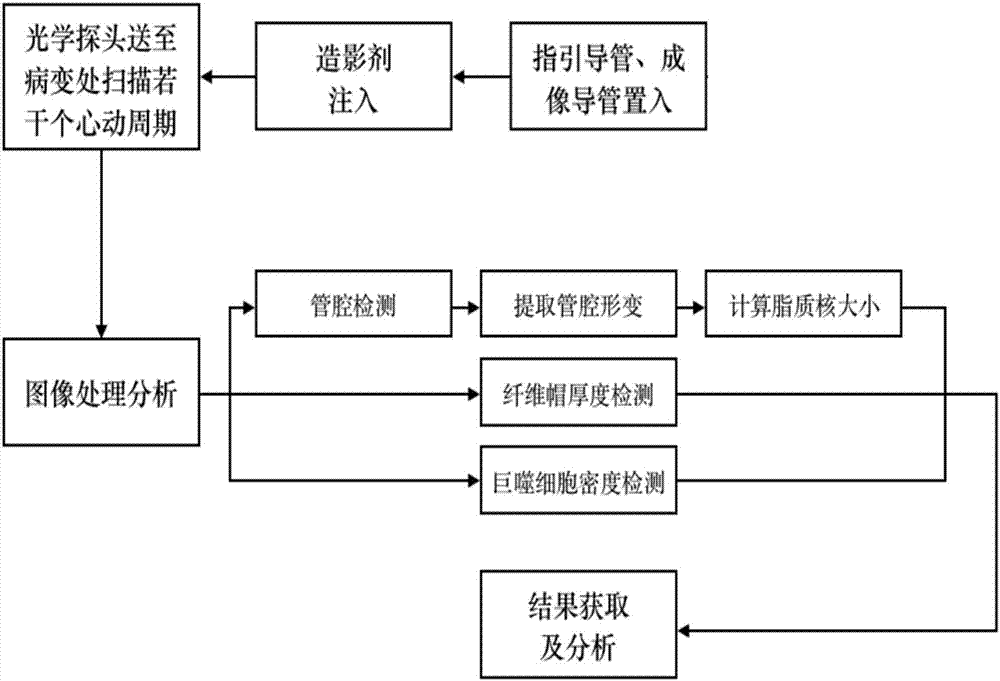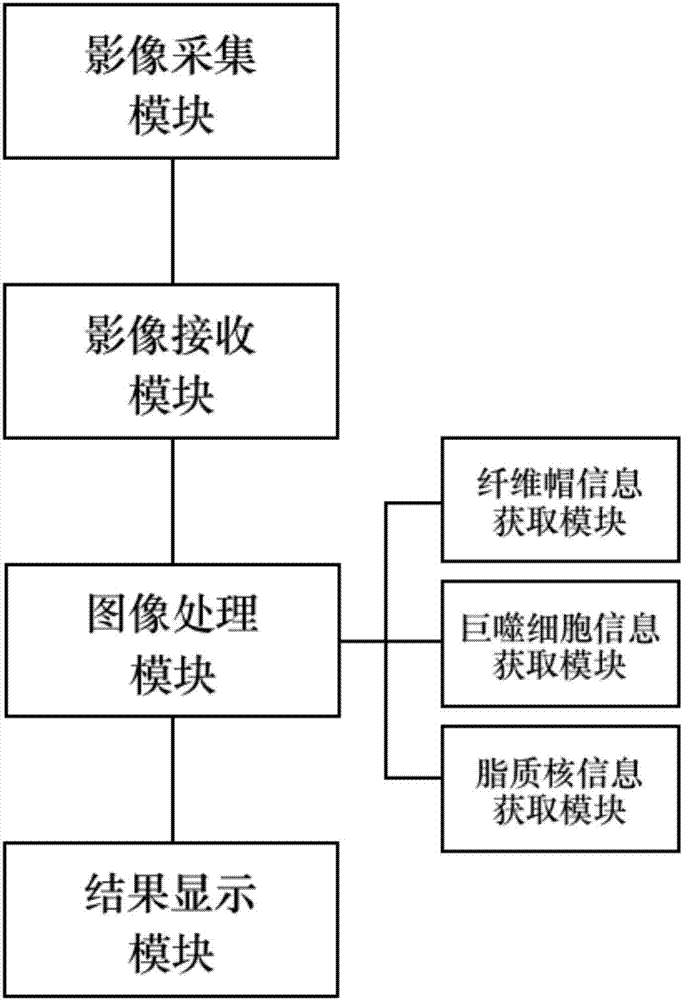Plaque stability determination method and system based on optical coherence tomography
An optical coherence tomography and stability technology, applied in the directions of diagnostic recording/measurement, diagnosis, medical science, etc., can solve the problems of inability of the guide wire to pass, non-uniform rotation distortion, imaging frame rate limitation, etc., to achieve comprehensive and efficient measurement analysis, The effect of improving accuracy and reducing costs
- Summary
- Abstract
- Description
- Claims
- Application Information
AI Technical Summary
Problems solved by technology
Method used
Image
Examples
Embodiment 1
[0046] In order to further understand the present invention, the present invention will be further elaborated and illustrated below in conjunction with the accompanying drawings and embodiments. figure 1 It is a flow chart of the method of the present invention. In a specific embodiment, the method can be summarized as follows: the optical probe is sent to the lesion to scan several cardiac cycles, and the deformation of the vessel lumen at the same site at multiple key time points of the cardiac cycle is obtained. ; It is preferred to obtain the lipid core size and plaque stress information of the plaque site through the table look-up method; combined with the measurement and analysis of the plaque fibrous cap thickness, macrophage infiltration degree, etc. by traditional optical coherence tomography, the stability of the plaque is analyzed. A more complete and comprehensive analysis.
[0047] Table 1 is an example of the form used by the above table look-up method. The maxim...
Embodiment 2
[0077] In another specific embodiment, the plaque stability on a specific blood vessel is analyzed by using the method of the present invention. Specifically, this method can be implemented through the following steps:
[0078] (1), select the left circumflex branch of the heart as the vessel of interest;
[0079] (2), determine the position of the plaque in the left circumflex branch;
[0080] (3) During the process of optical coherence tomography, the scanning device stays at the position determined in step (2), and scans multiple cardiac cycles, so as to obtain tomographic images where the plaque is located at multiple moments in the cardiac cycle;
[0081] (4), after the scanning device stays at the position of the plaque determined in step (2) for multiple cardiac cycles, the traditional optical coherence tomography process is continued;
[0082] (5) Obtain multi-moment tomographic imaging images within the time period of step (3), select N time points in the cardiac cy...
Embodiment 3
[0087] In yet another specific embodiment, the present invention also provides a plaque stability measurement system based on optical coherence tomography, the system comprising:
[0088] The image acquisition module is used for coronary artery image acquisition and generates image signals;
[0089] The image receiving module is used to receive the image signal generated by the image acquisition module and transmit it to the image processing module;
[0090] The image processing module processes and analyzes the received image signal. It includes the measurement and analysis of visible features and latent features of plaques. The measurement and analysis of visible features of plaques includes the acquisition of fibrous cap thickness and macrophage density. Lipid core size and plaque stress;
[0091] The result display module is used to display the measurement and analysis results of the image processing module.
[0092] Preferably, the image processing module performs visi...
PUM
 Login to View More
Login to View More Abstract
Description
Claims
Application Information
 Login to View More
Login to View More - R&D
- Intellectual Property
- Life Sciences
- Materials
- Tech Scout
- Unparalleled Data Quality
- Higher Quality Content
- 60% Fewer Hallucinations
Browse by: Latest US Patents, China's latest patents, Technical Efficacy Thesaurus, Application Domain, Technology Topic, Popular Technical Reports.
© 2025 PatSnap. All rights reserved.Legal|Privacy policy|Modern Slavery Act Transparency Statement|Sitemap|About US| Contact US: help@patsnap.com



